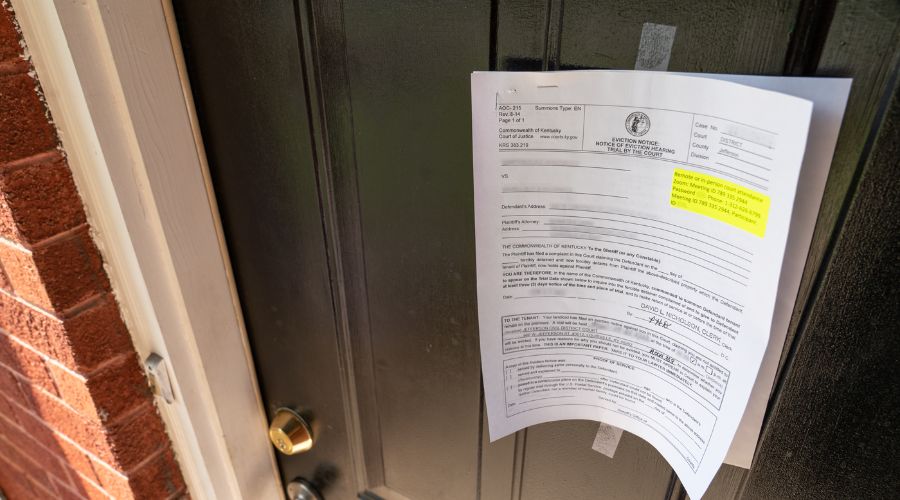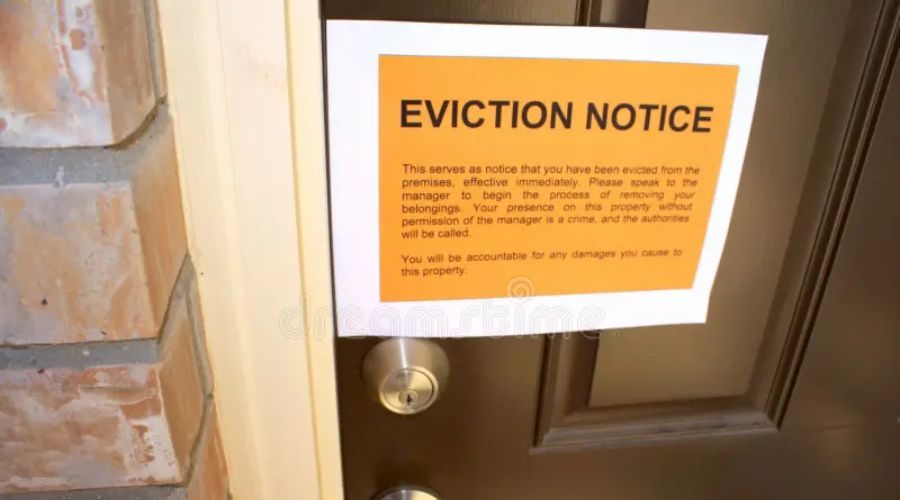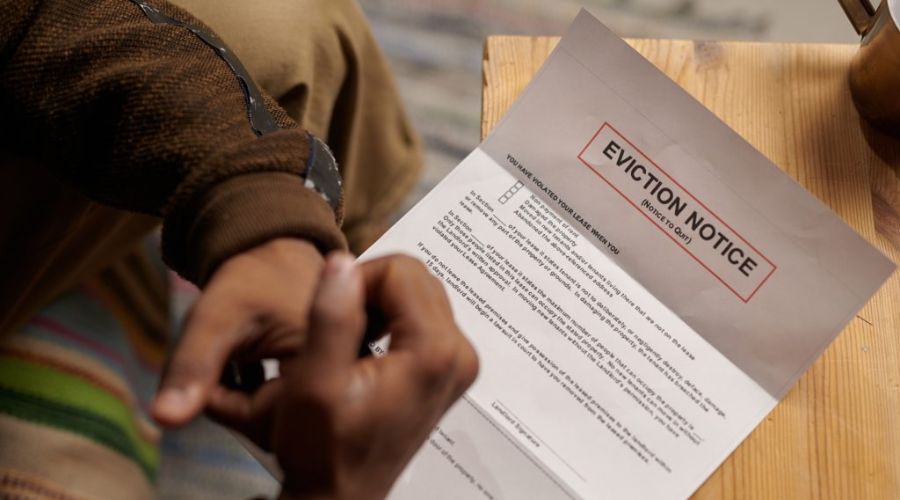Understanding the eviction process in Kentucky can feel overwhelming, but understanding the rules can save time, money, and stress. From serving the right notice to attending a court hearing, every step matters—and even a small error may set you back weeks.
LeaseRunner’s guide explains the timeline, legal procedures, and fastest possible outcomes so landlords stay compliant and tenants know their rights. With the right knowledge, you can handle eviction confidently and avoid costly mistakes.
Kentucky URLTA Jurisdictions: Where the Law Applies and What It Means
To fully understand how the eviction process in Kentucky works, it is important to see how the Uniform Residential Landlord and Tenant Act (URLTA) applies differently across jurisdictions. The following sections break down where URLTA governs and how eviction rules vary between covered and non-covered areas.
Overview of the Uniform Residential Landlord and Tenant Act (URLTA) in Kentucky
The Uniform Residential Landlord and Tenant Act (URLTA), codified under Kentucky Revised Statutes (KRS) 383.505–383.705, sets clear guidelines for residential leases. This law provides a framework for landlords and tenants, defining rights, responsibilities, and legal procedures for rental agreements.
However, URLTA only takes effect in local jurisdictions that formally adopt it. Understanding where URLTA applies is essential for navigating the eviction process in Kentucky and ensuring compliance with eviction laws.
When adopted, the URLTA standardizes lease provisions, notice periods, and remedies, offering a transparent system for both parties. It also helps prevent disputes by clarifying obligations regarding rent payment, repairs, maintenance, and lease termination.
Jurisdictions where URLTA applies vs. areas without coverage
Implications for the eviction process in Kentucky:
- In URLTA jurisdictions, Landlords must serve tenants with proper written notices before filing an eviction action. Nonpayment of rent requires a 7-day notice, while repeated or serious lease violations require a 14-day notice. Only after these notices and failure to cure may a landlord proceed to court.
- In non-URLTA areas, Landlords must follow the terms of the lease and state minimum requirements. Notice periods may not be clearly defined, and tenants may have fewer statutory protections.
In all areas, Kentucky law prohibits self-help evictions, such as changing locks, shutting off utilities, or forcing a tenant to leave. Only a court order for possession allows law enforcement to remove a tenant. Adhering to these procedures ensures a legally valid and smooth eviction process.

Legal Grounds for Eviction in Kentucky
In Kentucky, landlords must adhere to specific legal grounds when initiating an eviction. These grounds are defined under the Kentucky Revised Statutes and may vary based on whether the property is located within jurisdictions that have adopted the Uniform Residential Landlord and Tenant Act (URLTA).
URLTA applies to counties with populations of at least 68,000, such as Jefferson County and Kenton County. It's essential to verify whether your county is governed by URLTA to understand the applicable notice periods and Court Procedure.
Failure to Pay Rent on Time
The most common reason for eviction in Kentucky is the tenant's failure to pay rent. If rent is due on the 25th and hasn't been paid by the 26th, it is considered late. In such cases, the landlord must provide a 7-Day Notice to Pay or Quit, giving the tenant seven days to pay the overdue rent or vacate the property.
If the tenant fails to comply within this period, the landlord can proceed with filing an eviction lawsuit, which may lead to an Unlawful Detainer action.
Violation of Lease/Rental Agreement
Tenants may also face eviction for violating the terms of the lease or rental agreement. If the violation is curable, the landlord must issue a 15-Day Notice to Comply or Quit, allowing the tenant 15 days to remedy the breach or vacate the premises.
If the violation is incurable or the tenant fails to comply within the notice period, a 14-Day Notice to Comply or Quit is required, informing the tenant to vacate the property within 14 days. An incurable violation occurs when a tenant commits the same curable violation twice within six months.
Conducting Illegal Activity
Engaging in illegal activities on the rental property is a serious offense and can lead to immediate eviction. In such cases, the landlord can issue a 14-Day Unconditional Quit Notice, demanding the tenant vacate the property within 14 days without the opportunity to remedy the situation.
This notice applies when the tenant has previously received a 14-day notice to remedy a violation within the last six months and commits the same or a similar violation again.
Non-Renewal of Lease After the Rental Period Ends
When a lease term expires, and the landlord does not wish to renew it, they must provide the tenant with appropriate notice. For month-to-month tenancies, a 30-Day Notice to Quit is typically required, informing the tenant to vacate the premises within 30 days. If the tenant remains beyond this period without a renewed lease agreement, they become a "holdover" tenant, and the landlord can initiate eviction proceedings.
Other Reasons
Other grounds for the eviction process in Kentucky may include:
- Damage to the Rental Unit: Significant damage caused by the tenant beyond normal wear and tear.
- Unauthorized Pets: Keeping pets in a rental property where they are prohibited.
- Unauthorized Occupants: Allowing individuals to reside in the property without the landlord's consent.
- Excessive Noise or Nuisance: Engaging in behavior that disrupts the peaceful enjoyment of other tenants or neighbors.
In such cases, landlords must follow the appropriate notice procedures as outlined above, depending on whether the violation is curable or incurable.

Serving an Eviction Notice in Kentucky
When starting the eviction process in Kentucky, the first requirement is serving a legally valid notice. The following sections explain the different types of notices, what details must be included, and how to properly deliver them under Kentucky law.
Types of Notices
In the eviction process, the type of notice depends on why the landlord is ending the rental agreement. Each notice carries its own legal weight and timeline:
- 7-Day Notice to Pay or Vacate: Used when the tenant fails to pay rent on time. It gives the tenant seven days to either pay the full amount or move out.
- 15-Day Notice to Cure or Quit: Issued for lease violations other than rent, such as unauthorized pets or property damage. The tenant has fifteen days to fix the issue or vacate.
- 30-Day Notice to Terminate (Month-to-Month Tenancy): Required when a landlord wishes to end a periodic lease without cause. The tenant is given thirty days to leave the property.
These notices must be issued before a landlord can file an eviction lawsuit in court, forming the official first step in the eviction process. Clear understanding of landlord rights at this stage helps prevent unnecessary disputes.
What to Include in the Notice
A valid Kentucky eviction notice should be detailed and precise. Essential information includes:
- Tenant’s full legal name.
- Rental property address.
- Exact amount of rent owed or the specific lease clause violated.
- Deadline for compliance, matching the statutory period.
- Clear statement of consequences if the tenant fails to act.
This clarity ensures compliance with Kentucky law and prevents delays during the court phase of the eviction process in Kentucky. For tenants, knowing their tenant rights at this step can mean avoiding costly mistakes or missed opportunities to cure a violation.
How to Serve the Notice
Kentucky law recognizes several lawful delivery methods:
- Personal delivery directly to the tenant.
- Leaving the notice with a person of suitable age at the rental premises.
- Certified mail with return receipt to confirm delivery.
Documenting service is critical. If the landlord cannot prove the tenant received proper notice, the court may dismiss the case, forcing the landlord to restart the eviction process from the beginning. In some circumstances, tenants may seek assistance from legal aid programs to understand their options when a notice has been served.
Important Considerations
While serving an eviction notice is required by law, both landlords and tenants must be mindful of several key factors:
- Tenant rights remain protected: Tenants can pay overdue rent or correct violations within the notice period.
- Self-help evictions are illegal: Landlords cannot change locks, shut off utilities, or remove belongings without a court order.
- Court involvement is mandatory: An eviction cannot proceed without a formal judgment from the court.
- Compliance protects both parties: Following Kentucky’s statutory steps reduces disputes, ensures fairness, and supports a legally valid resolution.
These considerations highlight why correctly serving an eviction notice is vital in the broader eviction process in Kentucky. It protects landlords from legal setbacks and ensures tenants are treated fairly under state law.
Step-by-Step Kentucky Eviction Procedure
Understanding the Kentucky eviction process requires following each legal stage carefully. Below is seven clear steps every landlord must complete, beginning with the notice.
Step 1 – Serve Proper Notice
The eviction process in Kentucky starts with giving the tenant the right notice. The type of notice depends on the tenancy:
- Week-to-week tenancy → 7-Day Notice to Quit
- Month-to-month tenancy → 30-Day Notice to Quit
- Expired written lease → 10-Day Notice to Quit
- Properties outside URLTA jurisdiction → 30-Day Notice to Quit
Serving the correct notice is critical for compliance with Kentucky eviction laws and broader rent laws that regulate landlord–tenant relations in the state.
Step 2 – Filing a Complaint
If the tenant does not comply with the notice, the landlord must file a Forcible Detainer Complaint in district court:
- File in the court where the rental property is located
- Complete the Forcible Detainer Action forms
- Pay filing fees
Accuracy here is vital to avoid dismissal or delays during the eviction check by the court.
Step 3 – Serve the Legal Complaint
After filing, the court issues a Summons and Complaint. Service must occur at least 3 days before the trial:
- Delivery by sheriff or constable (not the landlord)
- Methods: personal service, substituted service, or posting & mailing
- Proper service ensures the Kentucky eviction process remains valid under state and federal laws in the U.S.
Step 4 – Wait for Tenant Response
Tenants are not required to file an answer. Instead, they must appear in court on the scheduled date. During this time, landlords should prepare supporting evidence such as leases, rent receipts, and communication records.
Proper documentation strengthens the landlord’s case when presenting to the judge before Judgment is entered.
Step 5 – Attend the Court Hearing
At the hearing, both parties may present arguments. Landlords must show clear proof of nonpayment or lease violations. If the tenant does not attend, the judge may grant default Judgment to the landlord. Tenants can appeal within 7 days, depending on whether the property is under URLTA or if claims like Squatter rights are raised as part of the legal procedures.
Step 6 – Obtain a Writ of Possession
If judgment favors the landlord, the court issues a Writ of Possession. This gives the tenant 7 days to vacate voluntarily. Only after that period can the sheriff enforce the order. Kentucky law prohibits self-help eviction, meaning landlords cannot personally remove tenants.
Step 7 – Regain Possession of the Property
The final stage of the eviction process in Kentucky occurs when the sheriff enforces the Writ of Possession. Tenants must vacate within 7 days, and only law enforcement can carry out removal. For abandoned belongings, landlords should provide tenants with reasonable time to claim items before disposal or sale.

Eviction Timeline & Costs in Kentucky
The eviction process in Kentucky typically spans three to six weeks, depending on the type of rental agreement and the notice period required under state law. Below is a clear breakdown of timelines and filing expenses:
Required Documents for Kentucky Eviction Process
Before moving forward with the eviction process, landlords must prepare proper documentation. The sections below explain what records and evidence you should have ready for court.
Best Practices for Record Keeping
When navigating the eviction process in Kentucky, landlords must maintain clear, organized records. Courts require landlords to demonstrate accuracy and transparency when disputes arise. You can stay organized by:
- Keeping digital copies of lease agreements, rent receipts, notices, and tenant communications.
- Backing up files in cloud storage or property management software for secure access.
- Documenting everything to protect your case and increase the likelihood of a favorable judgment.
Evidence to Show for Not Paying Rent
If a tenant denies failing to pay, landlords should present essential proof. Required documents for the eviction processs include:
- A signed lease agreement outlining rent terms and conditions.
- Records of previous payments, showing payment methods and due dates.
- Evidence of missed or returned payments such as insufficient funds, bounced checks, or chargebacks.
- Copies of reminders or notices sent via email, text, or certified mail to show the tenant was informed.
Evidence to Show for Lease Violations
In situations where eviction is based on lease violations—such as property damage, unauthorized occupants, or prohibited pets—documentation is vital. Use photos, videos, or security camera footage to clearly show the breach.
Reference the violated lease term within the agreement. Even without explicit wording, significant violations can justify eviction. Providing thorough, visual proof of misconduct helps establish credibility in court and reinforces your position in the Kentucky eviction process.
Property Condition Documentation
Courts in Kentucky also review property condition records to evaluate disputes. Landlords should:
- Maintain move-in and move-out inspection reports with dated photos or videos.
- Keep maintenance requests, invoices, and repair records tied to the tenancy.
- Clearly distinguish damages caused by tenants beyond normal wear and tear, ensuring fairness and compliance with Kentucky law.

5 Tips to Avoid Common Eviction Mistakes
Even small errors can create serious delays in the eviction process in Kentucky. By focusing on these five practical tips, landlords can protect their rights while staying compliant with state law.
Provide the Correct Notice
In Kentucky, landlords must give tenants the right type of eviction notice depending on the reason for removal. A 7-day notice is required for unpaid rent, while a 14-day notice applies to lease violations. Failing to deliver the right notice can delay the eviction process and may cause the court to dismiss your case.
Follow Lease Terms Accurately
Landlords must carefully review the rental agreement before moving forward. If you do not enforce the terms outlined in the lease, your claim may appear inconsistent. Courts often check whether the landlord acted fairly and respected the written contract. Staying consistent strengthens your case during the Kentucky eviction process.
Avoid “Self-Help” Actions
Kentucky law prohibits landlords from changing locks, shutting off utilities, or removing belongings without a court order. These “self-help” tactics are illegal and can expose you to lawsuits or penalties. Always rely on the formal court procedure when handling tenant disputes to ensure the eviction process remains valid.
File Properly with the Court
After giving notice and waiting the required period, landlords must file an unlawful detainer action with the local court. Filing in the wrong county or using incomplete documents can cause unnecessary delays. Precise paperwork and timely submission are critical to move the eviction process in Kentucky forward without setbacks.
Attend the Hearing Prepared
At the eviction hearing, judges expect clear evidence such as the lease, proof of notice, and records of unpaid rent or violations. Arriving unprepared can result in dismissal. Preparing documentation ahead of time demonstrates credibility and increases the chance of a smooth this process.
Conclusion
The eviction process in Kentucky doesn’t have to be confusing when you know the rules and timelines. By following the correct legal steps, landlords can protect their investments while tenants can ensure their rights are respected. Whether you’re preparing to file or responding to a notice, staying informed is the key to avoiding costly mistakes. Use this guide as your trusted resource to move through the eviction process with confidence and clarity.
FAQs
1. How long does it take to evict a tenant in Kentucky?
The eviction process in Kentucky usually takes 3–6 weeks. Landlords must serve notice first: 7 days for unpaid rent or 14 days for lease violations. If the tenant fails to comply, the landlord files an unlawful detainer action in district court. A hearing is typically held within 1–2 weeks.
If the judge rules for the landlord, a writ of possession gives the tenant 7 more days to move. Delays happen if the tenant contests, but in simple cases, eviction can finish in under a month.
2. What are the rules for eviction in Kentucky?
Kentucky law requires landlords to follow strict steps. They must issue written notice—7 days to pay rent or 14 days to fix lease violations. If ignored, the landlord files an unlawful detainer action in court. Lockouts, utility shutoffs, or removing tenant belongings without a court order are illegal.
After the hearing, if the landlord wins, the court issues a writ of possession giving tenants 7 days to vacate. Following these rules ensures the eviction process in Kentucky is valid and enforceable, protecting both landlords and tenants under state law.
3. What’s the fastest a landlord can evict you in Kentucky?
The fastest eviction process in Kentucky happens when rent is unpaid. A 7-day notice to pay or vacate is required. If unpaid, the landlord files an unlawful detainer immediately. Courts may schedule a hearing within a week. If the landlord prevails, a writ of possession gives the tenant 7 more days to leave.
In the best case, eviction can be completed in 2–3 weeks from the notice date. Any tenant defense, paperwork error, or court backlog can extend the timeline. Self-help evictions like lockouts are not permitted.



